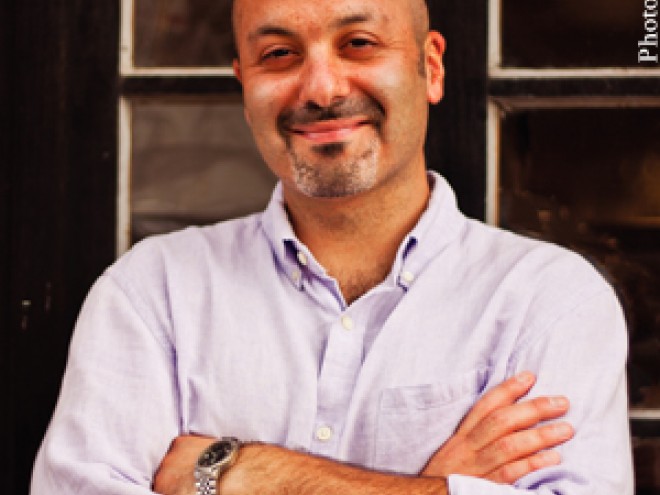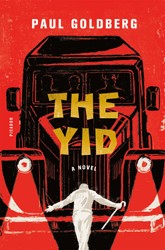In A Replacement Life, literary journalist Boris Fishman’s ambitious first novel, we enter a richly comic world of aging Russian Jewish immigrants, still fierce in their will to survive after so much misery wrought by Hitler and Stalin, and their spiritually lost new world grandchildren, displaced from the cradle of Brooklyn (where most of the emigres from the Former Soviet Union settled in the 1970s) to Manhattan, struggling to locate themselves, to figure out a city that remains alien and bewildering. Fishman’s hero is Slava Gelman, a young man wicked in satirizing his own self-absorbed, twenty-something hipster existence, yet also a deeply-feeling grandson whose life takes a serious turn after he hears about the loss of his cherished grandmother: “our first American death.”
Fishman’s achievement in A Replacement Life is how he evokes — summons — Slava’s awakened filiality, the grandson’s needy desire to chant a form of secular kaddish for his grandmother who survived the Minsk ghetto but never received (because she never applied for) restitution after the War from the German government. A low-level fact checker for a New Yorker-like magazine called The Century, Slava (from the beginning the English translator and go-to writer in the family) is compelled to fabricate a version of his grandmother’s horrific story, but now on behalf of his widowed grandfather, who avoided the Russian ghetto but ended up in Uzbekistan. “Maybe I didn’t suffer in the exact way I need to have suffered,” argues the wily grandfather to his initially reluctant grandson, in defense of the scheme; “but they [the Russians] made sure to kill all the people who did. We had our whole world taken out from under us.”
As the novel unfolds, Slava becomes more deeply, and thus potentially illegally implicated as the “author” of his grandfather’s restitution scam. Indeed, the grandfather — charismatic and vital, hilarious in his linguistic tangles with English, a legendary shtarker among the displaced enclave of Brooklyn’s Russian Jews — invites his cohort of FSU friends to let Slava tell their stories as well. As a result, the grandson finds himself absorbed by, indeed immersed in the horrors of twentieth century Jewish memory. Such a total immersion enables Slava to re-connect with his grandmother: “I get to be with my grandmother for a thousand words,” he confesses.
In the end, Slava’s empty life in the City is replaced by his grandmother’s story; as he imagines her life as a young woman in the ghetto, sees what he imagines the horrors she has seen, the choices she made to survive, his own capacity to feel himself into the meaning of his family’s history expands. “If you can invent,” Slava comes to recognize, “you must be alive still.” In a set of powerful concluding scenes, Slava receives the fragments (relics?) of Jewish history from one of the grateful family members for whom he testifies. He also re-connects at the graveside, with his beloved babushka. “Did I betray you by inventing all those things?” asks the grandson. Does Slava seek absolution? Her blessing? In Fishman’s moving conclusion, Slava seems cleansed, ready to move on, his soft twenty-first century life “replaced” by the rigor of history and memory, embodied in the figure of his grandmother. “She is no longer around to answer for herself,” Slava muses. “And so she will have to live on in the adulterated form in which he must imagine her.”
Donald Weber writes about Jewish American literature and popular culture. He divides his time between Brooklyn and Mohegan Lake, NY.




